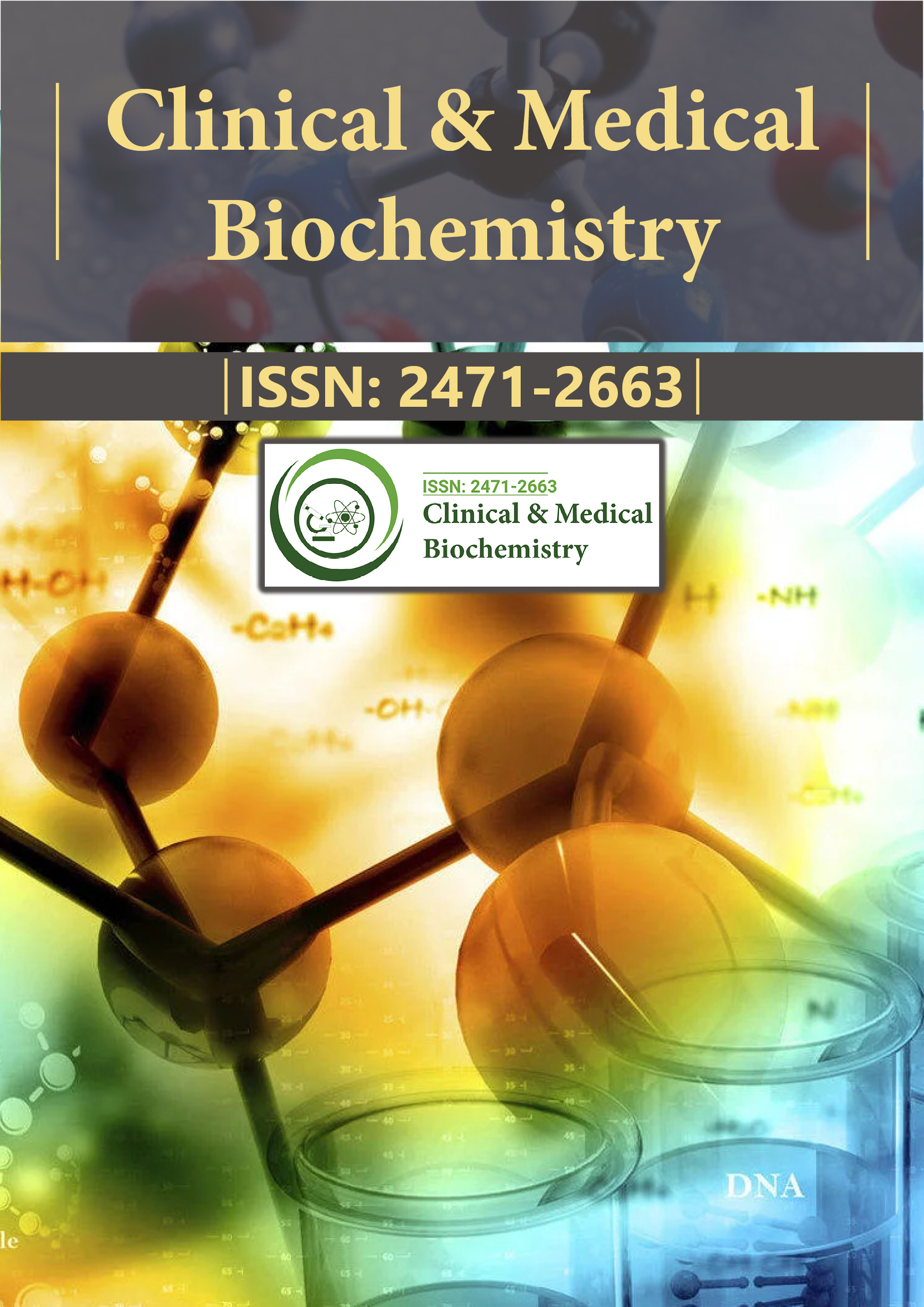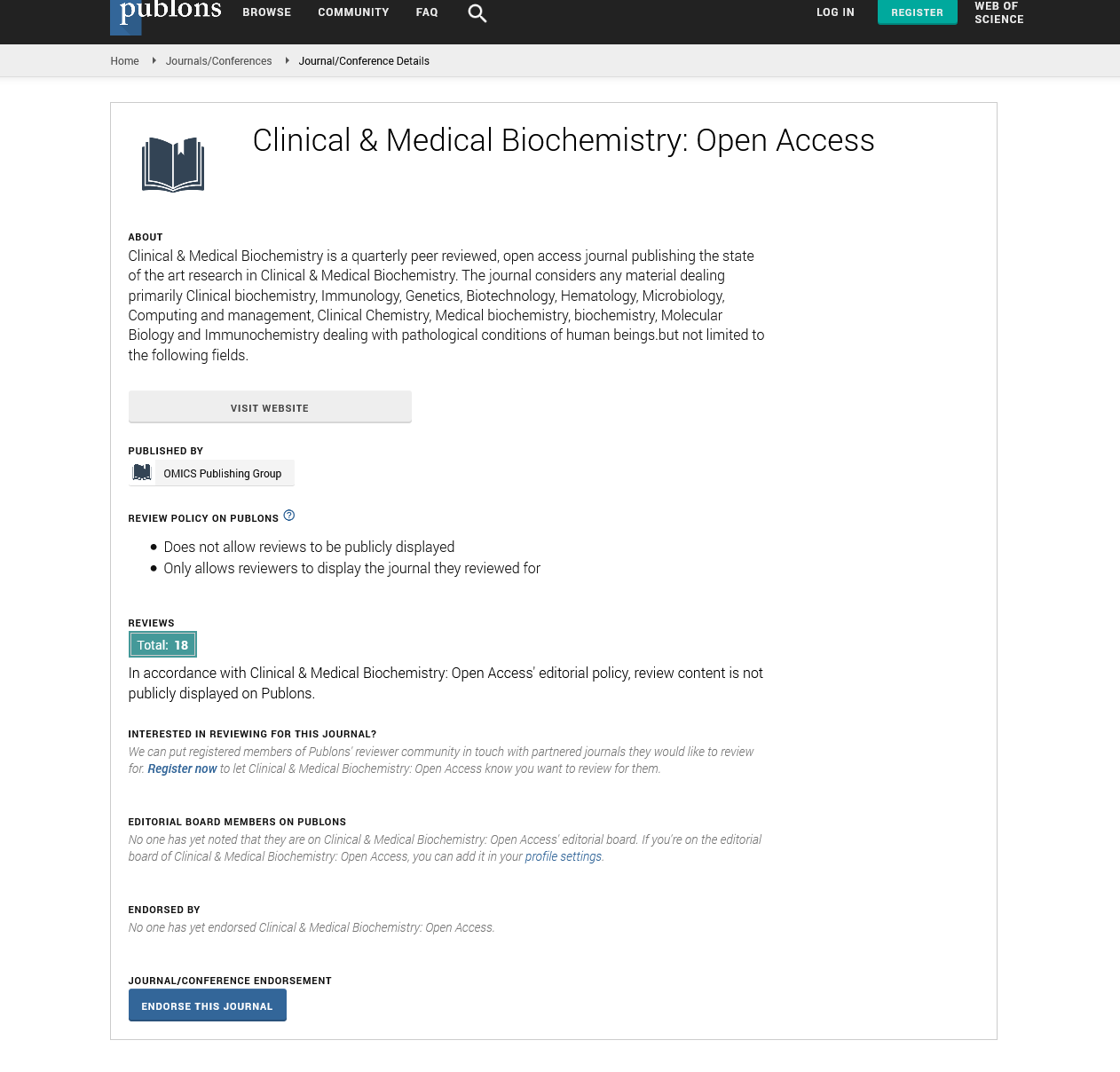Indexed In
- RefSeek
- Directory of Research Journal Indexing (DRJI)
- Hamdard University
- EBSCO A-Z
- OCLC- WorldCat
- Scholarsteer
- Publons
- Euro Pub
- Google Scholar
Useful Links
Share This Page
Journal Flyer

Open Access Journals
- Agri and Aquaculture
- Biochemistry
- Bioinformatics & Systems Biology
- Business & Management
- Chemistry
- Clinical Sciences
- Engineering
- Food & Nutrition
- General Science
- Genetics & Molecular Biology
- Immunology & Microbiology
- Medical Sciences
- Neuroscience & Psychology
- Nursing & Health Care
- Pharmaceutical Sciences
Designing and development of novel hybrid drugs from ayurveda and allopathy
22nd International Conference on Medicinal Chemistry and Drug Design
November 09, 2022 | Webinar
Krishna Misra
Indian Institute of Information Technology, India
Scientific Tracks Abstracts: Clin Med Bio Chem
Abstract:
The concept of hybrid molecules incorporating pharmacophores of herbal drugs and commercial Allopathic ones is novel and promising that can effectively target multifactorial diseases. The hybrid approach can be used to optimize specific biological properties like affinity and selectivity, in addition to gain potent biological activities distinct from the ones associated with the physical mixture of components. Due to the high potential of herbal bio actives to exhibit pronounced biological activities, these have been one of the major sources of components for hybrid molecules. The hybrid approach has been applied for neurodegenerative disorders, in various types of anti-cancer agents as well as in miscellaneous areas of bioactive compounds including antioxidants, antimalarial drugs and estrogen-related hybrids. Different authors have discussed suitable ways to chemically connect the drug components, how to use the approach to enhance biological activity with respect to both activity and selectivity and potential drawbacks of the hybrid approach. It is reported that in some cases hybrids are more active than the sum of their components, but in many cases, these should be considered as pharmacological entities in their own respect. We have designed, synthesised and tested a hybrid molecule containing pharmacophores of L-Dopa,the commercial drug for Parkinson’s disease and curcumin. Curcumin, a dietary polyphenol obtained from the spice Curcuma longa L. (turmeric) protects neuronal mitochondria against oxidative/ nitrosative stress, induces glutathione synthesis in cell and animal models of Parkinson’s disorder. A composition was designed through in silico methods where the chromophore portion of curcumin was covalently linked to L-DOPA, with the objective that the conjugate offers protection to the surviving neurons. The drug is expected to serve a dual purpose within dopaminergic neurons. Our in-silico studies show that this modified Curcumin - L-DOPA drug can serve as a highly efficient inhibitor of both that is Parkin (c-Abl) as well as α-Synuclein, the two neuronal proteins implicated in Parkinson disease. The wet lab experiments are in progress. The hybrid approach has potential future in drug discovery, since it can combine the basic concept of Ayurveda with perspective of modern medicine.
Biography :
Krishna Misra received his Ph.D in Organic chemistry from Department of Applied Sciences Indian Institute of Information Technology Allahabad. He is expertise in Organic Chemistry, Biotechnology, Chemistry of Natural Products, Nucleic Acids. He currently serves as Honorary professor at Indian Institute of Information Technology, Allahabad, and CBMR, SGPGI campus, Lucknow.

